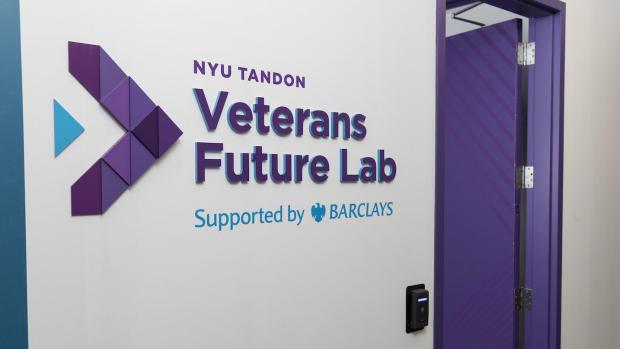With a little help from my friends
Veterans Future Lab members show that relationships forged in the military can be valuable in business

Everyone agrees: there’s something special about friendships made in the military. Close friendships can form so fast among military members and their families that it can feel as though relatively new companions have actually known each other for a lifetime. Part of that naturally has to do with shared experience; it’s comforting to realize that someone truly understands your way of life and the challenges you face each day. Add in the fact that service members are there for one another at times when they may be far away from their own families, and it becomes clear why even when someone is assigned to a new unit or command, those friendships endure.
There have even been scholarly studies of the roles friends made during military service play in post-deployment reintegration, with sociologists drawing upon the story of Achilles and Patroclus and Aristotle's books on friendship in the Ethica Nicomachea to make their points.
Benjamin Gaines and Collin Meyers don’t need a sociologist to tell them why their friendship is so important. The two met while in the Marine Corps — Gaines as a logistics officer and Meyers as battalion communications officer — and they bonded over countless cups of coffee and conversations about life in the Corps. Deployed together to Iraq as part of a 1,500-person unit, they did not have much time for coffee: Meyers was leading a communications platoon of 60 Marines through combat tour, overseeing a massive IT and Telecoms operation, while Gaines was leading his own large platoon on more than 200 resupply and combat missions throughout Ramadi and Fallujah. Still, they remained close, even after Meyers left the Marines to return to school, and Gaines remained to serve as a special operations team commander.
The relationship took on an added dimension once both were well settled back in civilian life and became business partners. Their startup, Jackpot Data Science Group, is focused on helping businesses find the data they need to run optimally and gain useful insights from it, affordably and efficiently. Jackpot is a member of the current Apex program cohort at NYU Tandon’s Veterans Future Lab (VFL), aimed at providing them with the resources to scale enterprise. Being in the same battalion for three years, they say, gave them good insight into each other’s skills and strengths, and with the help of the VFL, the sky could be the limit. One recent project harked back to their public-service roots: in the early stages of the pandemic, when there was little data on the spread, they developed and web-hosted a tool that makes COVID-19 data available, insightful, and useful.
The founders of another data company in the Apex cohort, Sail Analytics, have a somewhat similar tale of meeting: Uri Shanske and Dyan Gibbens first encountered each other as Second Lieutenants in the U.S. Air Force. “I arrived to do my pilot training in Oklahoma, and Dyan was behind the desk checking people in,” Shanske recalls. “She was reading a Thomas Friedman book I had just read and enjoyed, and we struck up a conversation.” Another point of connection was Gibbens' husband, J.R., who was also in the Air Force and, by chance, was assigned to be Shanske’s flight instructor.
Gibbens and Shanske confirm that having a long friendship before becoming business partners has definite benefits. “You know each other’s strengths and weaknesses very well, so you can bolster each other when needed,” they say. “And military service fosters trust.” Asked if that trust extends to flying together, they explain that it’s a question only a civilian would have. “The Air Force doesn’t just allow you to hop into a plane and take a ride with a friend,” they explain.
Two other companies now active at the VFL, CooMo Travel (aimed at personalized travel planning with real-time recommendations) and Eddi (makers of sustainable home products) were founded by service members in the same battalion. CooMo’s founder, Tyler Moyer, and Jamison Pereira, who recently launched Eddi, were stationed in Afghanistan at the same time, but it’s sheer coincidence that their startups are now part of the same Apex cohort, since they hadn’t been in touch about their business ideas. It’s proof, they say, that the military world is a small one, and the world of military entrepreneurs is even smaller.





